- Home
- INDUSTRIES
- Tech, Media & Telecom
Industries
Advisors to Tech, Media, and Telecom Companies
Delivering deep insight and creative strategies for this ever-changing industry
Capitalizing on change. Giving you the edge.
It’s fast-paced, it’s dynamic, and it’s packed with opportunities. The Technology, Media and Telecom (TMT) sector needs an expert touch. We’ll deliver a deep understanding of market forces, strong relationships with industry leaders, and decades of experience in this rapidly-growing sector. Our track record of outstanding results speaks for itself.
PCE’s specialist team ensure your business thrives on the prospects created by disruptions and continuing transformation. We’ll help you capture opportunities for growth and innovation, and make them work for you.
With technology evolving at an unprecedented speed, PCE is primed to address your ever-changing needs - as they happen. Our experts are here to keep you abreast of the market’s most influential trends, companies and investors. You can depend on innovative strategies that deliver a true competitive advantage.
free resource
Tech, Media & Telecom
RELATED RESOURCES
Keys to Selling Your Digital Agency
Selling your digital agency? Here are the eight essential steps to improve and position your company for a successful sale transaction.

Tech, Media & Telecom
Representative Transactions
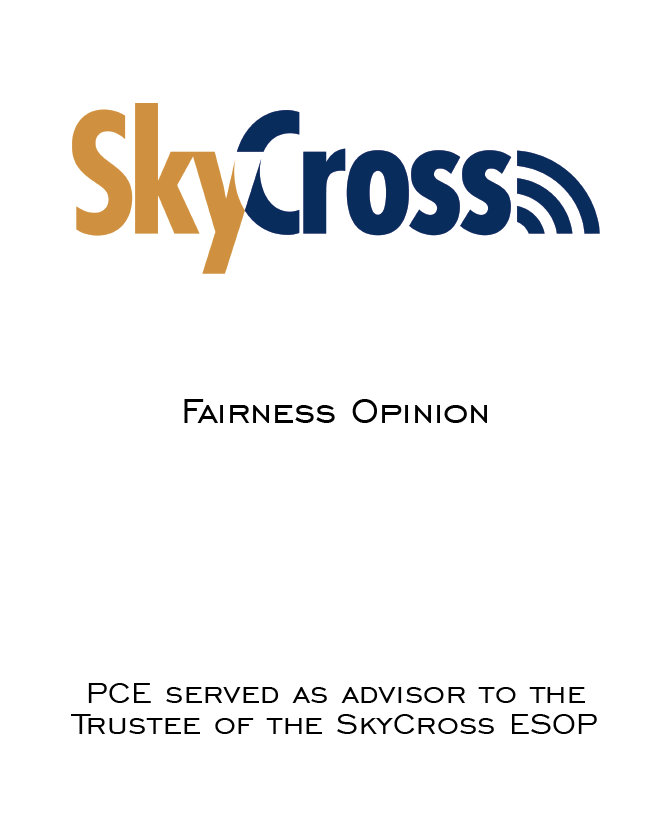
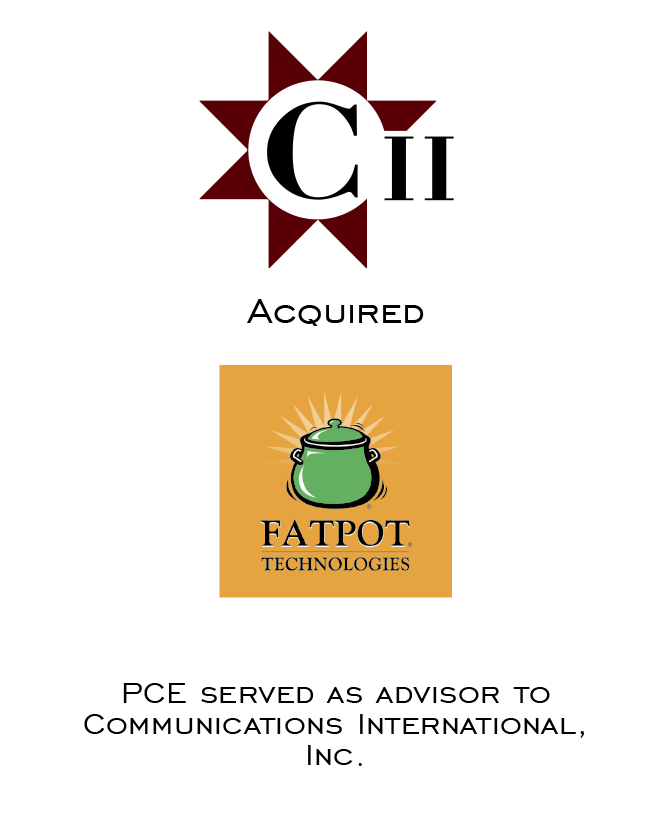

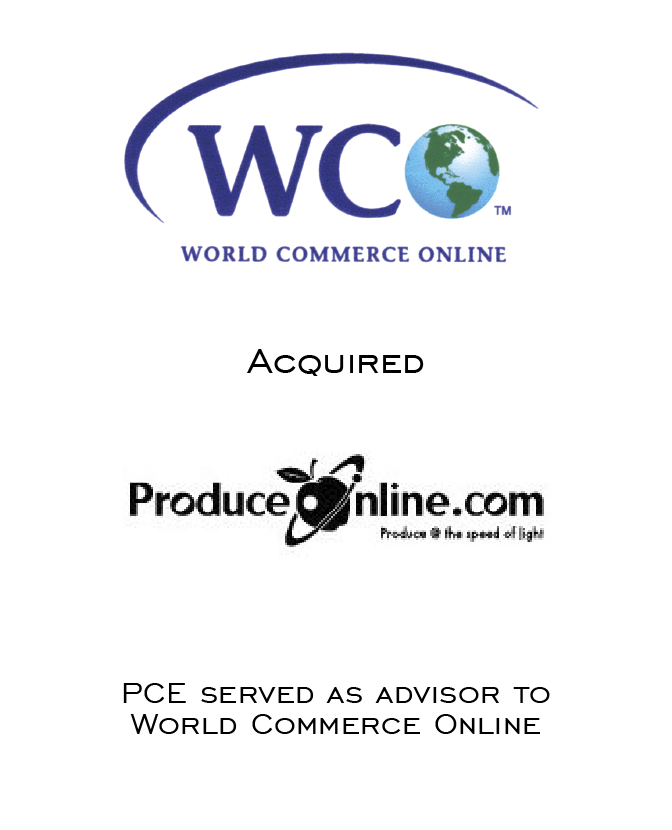

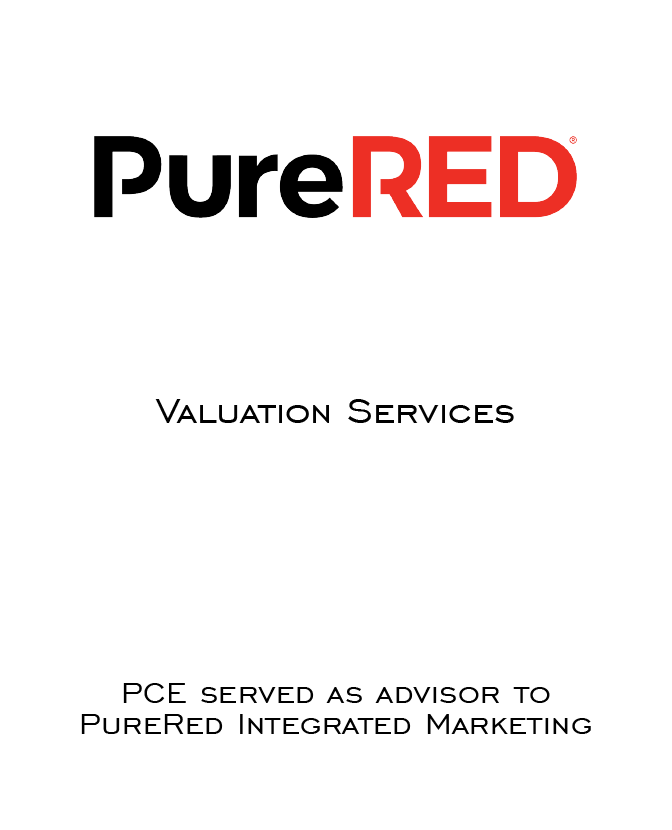
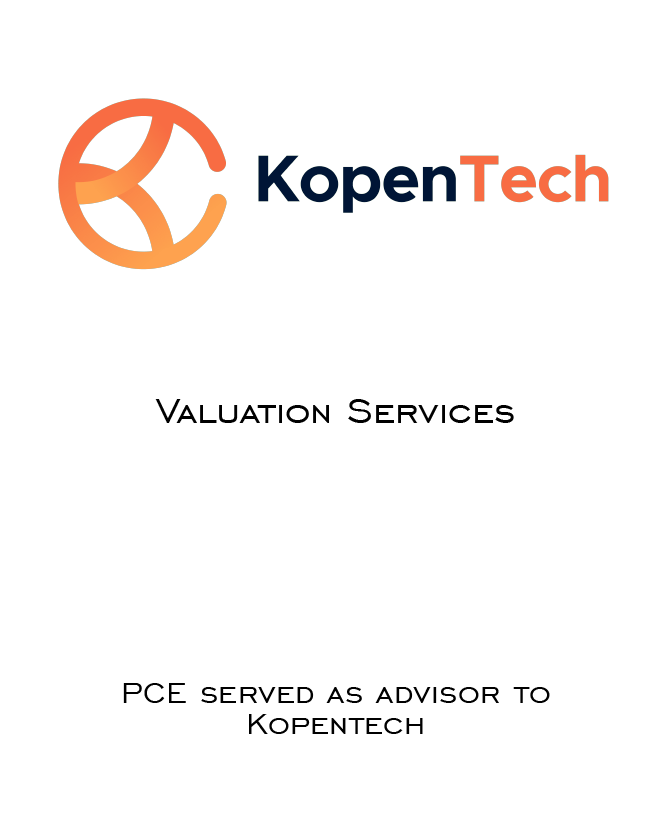

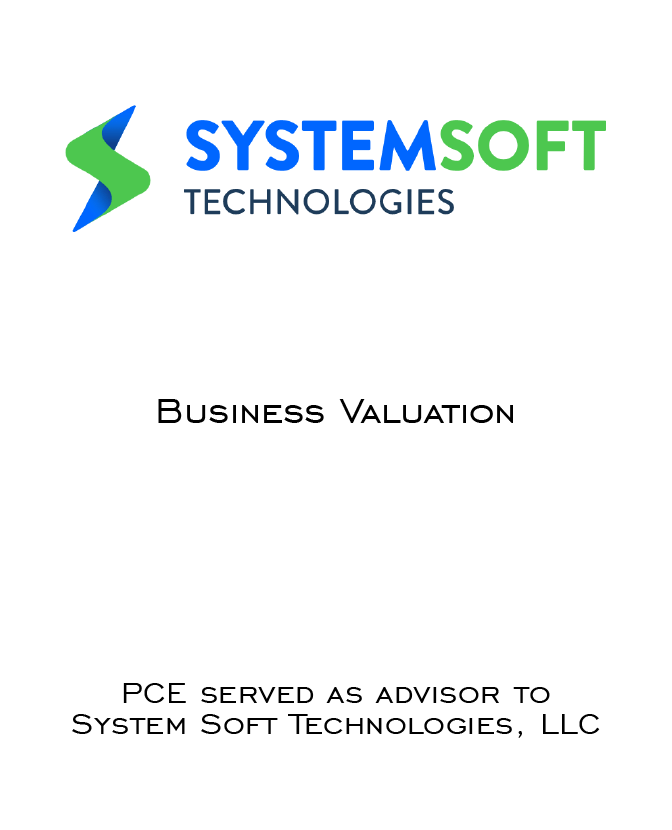
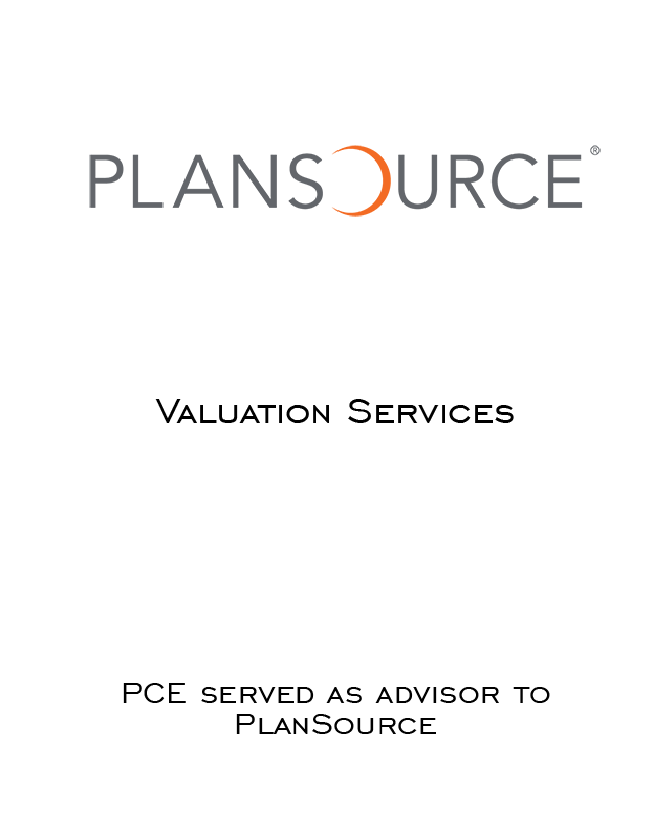
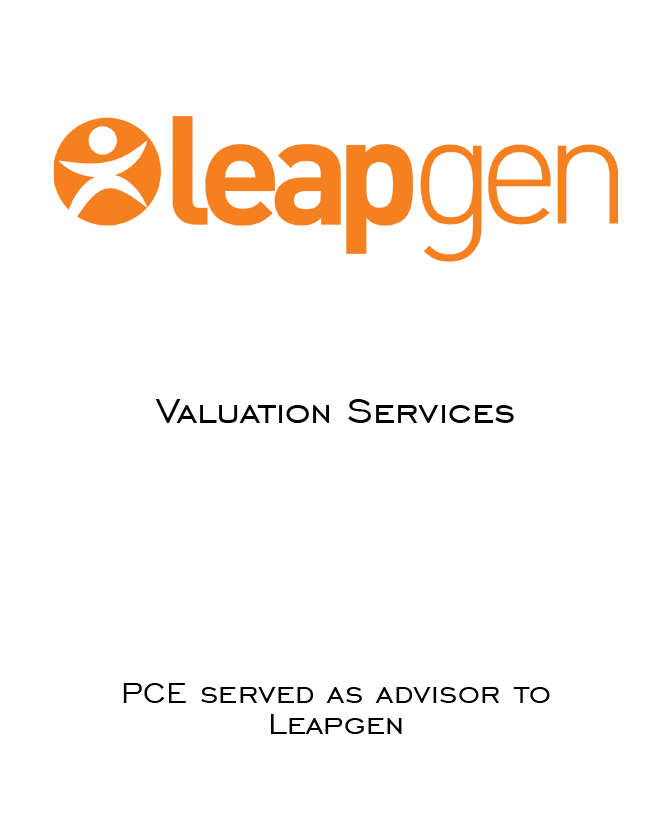



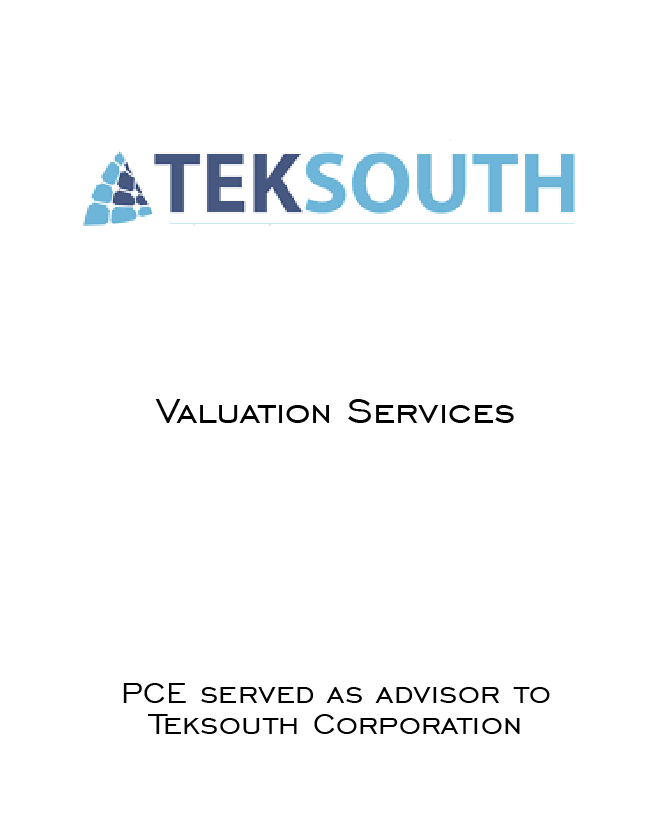

Main Contacts
Meet the PCE team, delivering insight and strategies to harness opportunities in the TMT sector.

Joe Anto
Managing Director
Joe Anto is a Managing Director in PCE’s investment banking group. With more than 20 years of finance, M&A, and C-level experience in various industries, he is well-equipped to advise middle market clients on potential M&A and financing opportunities.
Throughout his career, Joe has executed more than $3.5 billion in M&A and financing transactions across a variety of sectors. As a former business owner and C-suite executive, Joe understands the challenges clients face when evaluating strategic transactions.
Prior to joining PCE, Joe was CEO and CFO for a publicly-traded retail and pharmacy chain with 550+ stores and $2 billion+ in revenue. Joe also served as SVP of M&A and Investments for one of the largest newspaper holding companies in the U.S. Earlier in his career, Joe served as Director of Investments for a distressed and special situations hedge fund and also worked in venture capital and investment banking.
Certifications & Affiliations
- FINRA Series 24 and 79 Securities License
- Member - Association for Corporate Growth, South Florida Chapter
Education
- Emory University, BBA with Concentrations in Finance & Information Technology
- Columbia University, MBA with Concentration in Finance

Eric Zaleski
Managing Director
Located in PCE’s Chicago area office, Eric Zaleski is a part of PCE’s ESOP Advisory Group. With over 20 years of experience advising middle market clients with liquidity and growth financing initiatives, often involving ESOPs, Eric understands the challenges that business owners face in growing and funding their companies.
With tremendous insight into the benefits associated with ESOPs, Eric has the analytical and organizational skills to guide business owners through the most complex ESOP structures. Over the years, Eric has established a proven track record of providing business owners with strategic advice for the implementation and financing of ESOPs to meet their objectives.
Prior to joining PCE, Eric served as Senior Vice President – ESOP Division Manager of a Chicago based bank. Throughout his career, Eric has managed nearly half a billion in commitments on middle market senior loans. Additionally, over the past 15+ years, Eric was responsible for sourcing more than $1 billion in ESOP and leveraged financed opportunities.
Certifications Affiliations
- Member – National Center for Employee Ownership (NCEO)
- Member – The ESOP Association
- Member – The Ohio Employee Ownership Center
- FINRA Series 24 & 79 Securities Licenses
Service
- Executive Committee Member – Small Business Growth Corporations
- Former Board Member – Bear Necessities Pediatric Cancer Foundation (2006 – 2009)
Education
- BA, Criminal Justice/Psychology, Aurora University, Chicago, IL

Ali Masoud
Vice President
Ali brings a wealth of experience and a proven track record of success to PCE's M&A practice. As Vice President, he spearheads critical deal execution, from crafting compelling presentations to managing meticulous due diligence processes. Ali specializes in buy-side and sell-side mergers and acquisitions, recapitalizations, and general corporate advisory transactions.
Prior to joining PCE, Ali honed his expertise at several globally recognized investment banking firms, leading transactions across diverse industries, including a strong focus on software and technology. He possesses a deep understanding of the entire deal lifecycle, having actively participated in origination, execution, and post-closing support. His proven ability to effectively manage teams and clearly communicate with stakeholders has been instrumental in closing numerous successful deals.
Ali's qualifications extend beyond his financial acumen. He holds a Master's degree in International Finance and Economics, bringing a strategic mindset to every transaction. His experience as a Turnaround CEO further underscores his adaptability and problem-solving skills. With his collaborative spirit and passion for the industry, Ali is committed to delivering exceptional results for our clients.
Certifications & Affiliations
- FINRA Series 7, 63 and 79 Securities License
- Member - Association for Corporate Growth, New York Chapter
Education
-
Columbia University, School of International and Public Affairs, Master of International Finance and Economics
-
University of New Mexico, Master of Science, Physics
Take the next step
Complete the form below, and we’ll contact you to learn about your business goals and aspirations. Let’s get started.
Resource Center
Explore our storehouse of market-leading intelligence and industry advice.


